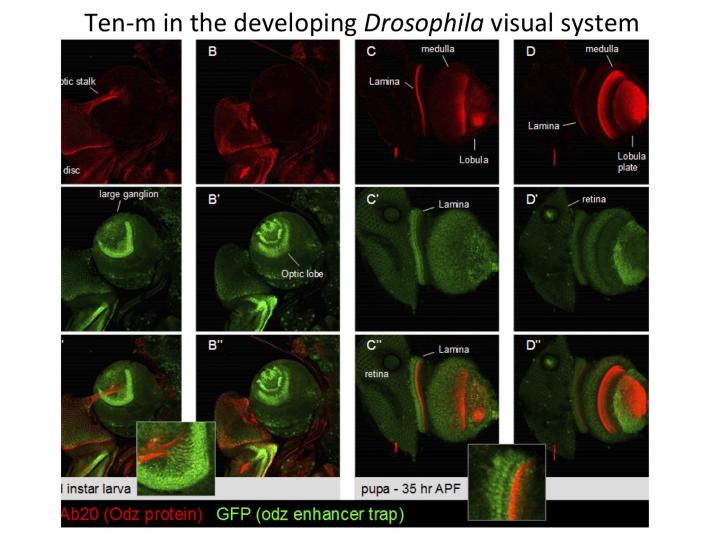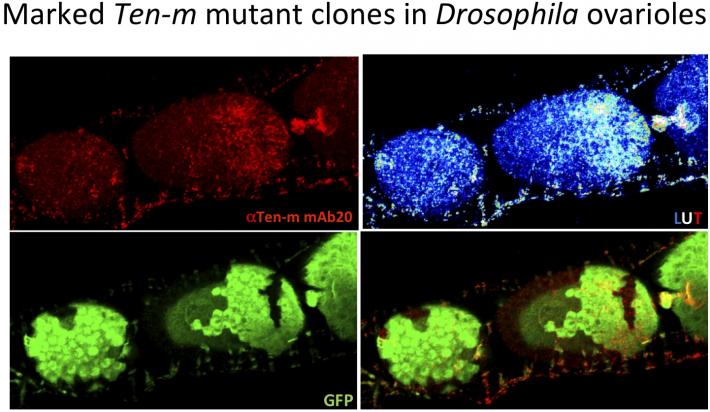Prof. Emeritus Ron Wides
Research
Tenm proteins (also known as Teneurins, or Odzs) have important developmental and homeostatic functions. We study them with a varied repertoire of integrated toolkits.
This family’s proteins are highly conserved in all metazoans, and mediate cell-cell interactions. They are transmembrane proteins that interact homophilically between adjacent cells, whereby the Tenm proteins in both contacting cells act reciprocally as ligand and receptor for each other. In addition to these homophilic contacts, they also respond to additional extracellular ligands, such as latrophilins.
Subsequent to ligand contact, signals are transduced intracellularly by Tenms through divergent mechanisms. The proteins are cleaved, and modify cytoskeletal regulation. Once triggered, a discrete intracellular domain fragment also translocates from the inner face of the cell membrane to the nucleus to regulate transcription.
Tenm proteins are expressed in a variety of tissues and organs, but are most prevalent in the nervous systems in all species of the animal kingdom. Tenms’ activity directs neuronal: pathfinding; contact selection; synaptogenesis; and plasticity, especially in development. The regulation of neuronal plasticity is reiterated in adults, where it is integrally involved in learning, memory, and behavior.
Beyond the nervous system, these proteins’ cell interaction roles are involved in other cell types’ and tissues’ development and homeostasis, including in: hemocytes; the heart; the germ line; limbs; and muscle.
Given the highly conserved nature of the known signaling pathways in which Tenms are implicated, the findings in one animal species are relevant to genes in the entire metazoan web of signaling, from simple invertebrates to man.
We primarily study Tenms and their pathways in the fruitfly Drosophila melanogaster, integrating approaches at the bioinformatic, molecular genetic, protein biochemical, cellular, tissue, organismal, behavioral, and systems levels.
Courses
80-208
80-463
80-557
80-751
80-855
Media


Last Updated Date : 25/11/2025



